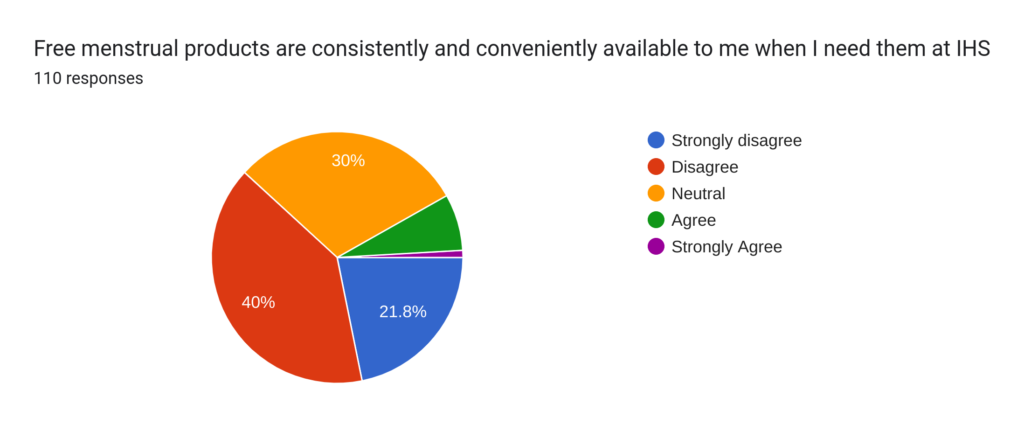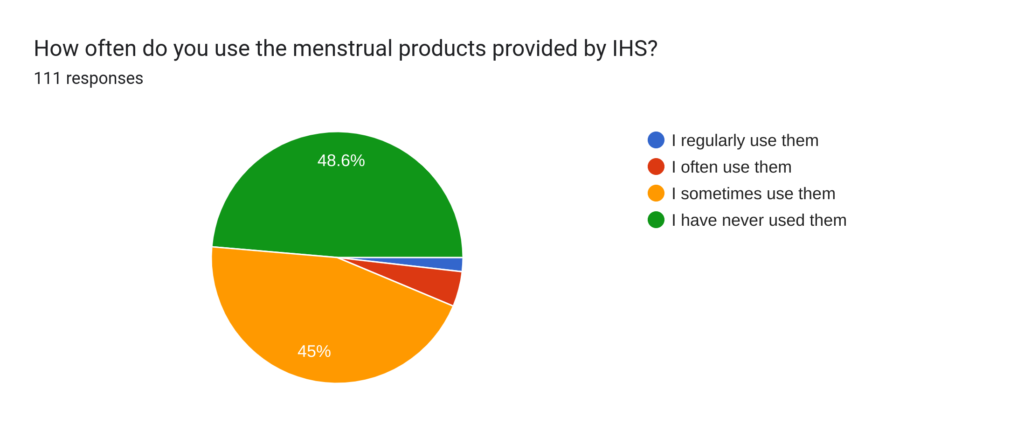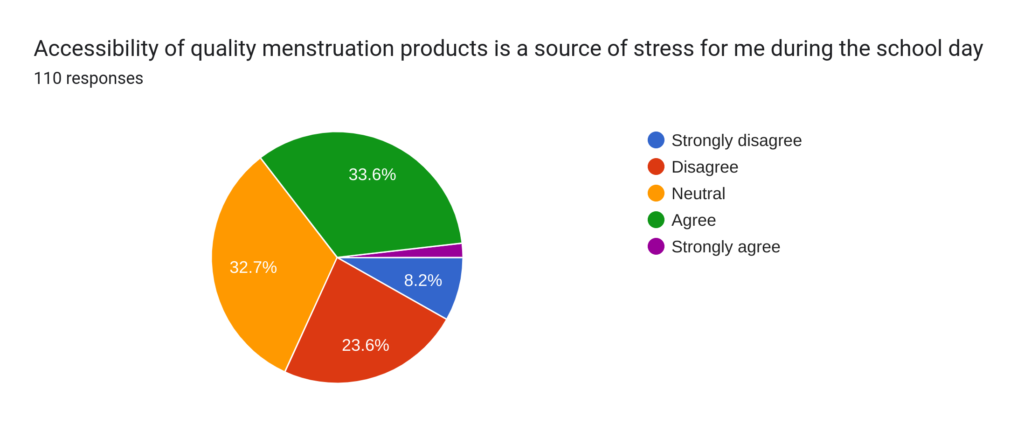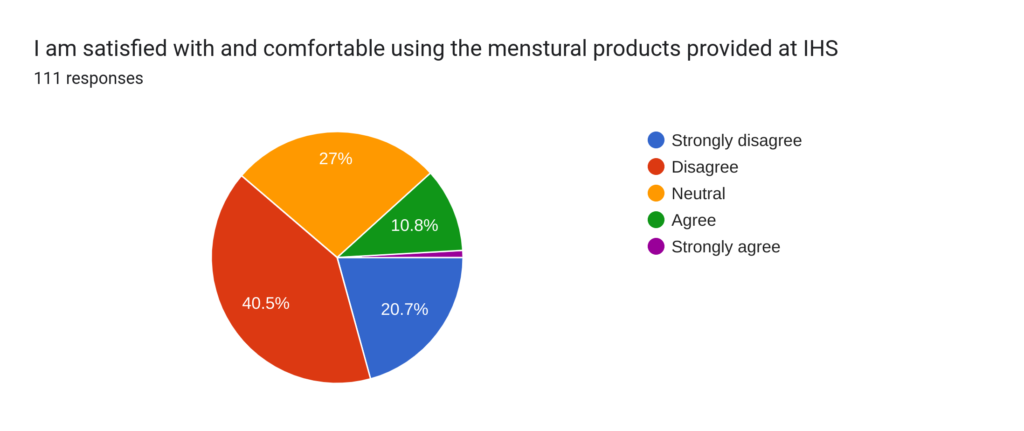Picture this: you’re sitting in class, listening to your teacher drone on about scientific notation or the quadratic formula when suddenly you feel a familiar rush in your lap. You sign out, take the hall pass, and rush to the nearest bathroom. Then, once you’ve locked the door, you witness a most unwelcome sight: your period has started, and there aren’t pads or tampons nearby.
Hundreds of people at IHS and millions of others around the country have experienced the same phenomenon. In the past, access to menstrual products at IHS meant forking over a quarter for every new product. Even after the menstrual products became free, their quality remained low, and the machines were often broken and empty. Students described the products as “not comfortable” and “horrible,” which shows that they clearly were not satisfied with the products provided. “No woman should have to shove cardboard up her cooch—that shit hurts,” said one IHS student.
This year, the IHS Student Council noticed the demand for high-quality period products. By sending out a survey to the school, they found that while more than half of the participants had used the products before, 61.2 percent were not satisfied with the menstrual products provided. “It’s clear that people either didn’t feel that the products were accessible, that they weren’t conveniently located, or that if they were able to get the products that they weren’t ones that they’re comfortable using,” said Ezri Rubenstein-Miller ’24, secretary of the Student Council. The group partnered with the Community Closet, which had received a generous donation of menstrual products from the Food Bank of the Southern Tier, and started stocking baskets with these products. They have started small with a trial run in a few IHS bathrooms, but with a positive response from the student body, the Student Council officers hope to eventually expand the project. “So far [the trial run is] working well, so I think we’re going to move towards getting them in every bathroom,” said Juju Crane ’24, president of the Student Council. Rubenstein-Miller also expressed interest in expanding the project to other schools in ICSD. “It would be amazing to have something like this in the middle schools, too. Especially at the middle school age, people are insecure about menstruation,” she pointed out. “Having something like this can help break the stigma.”
While the project continues to expand, the Student Council will need more hands to help the project flourish. They are planning to hold product drives and product bin distribution sessions so that IHS students can participate in the initiative. For now, the officers request that everyone respect the product bins so that they may continue to be accessible to all.




